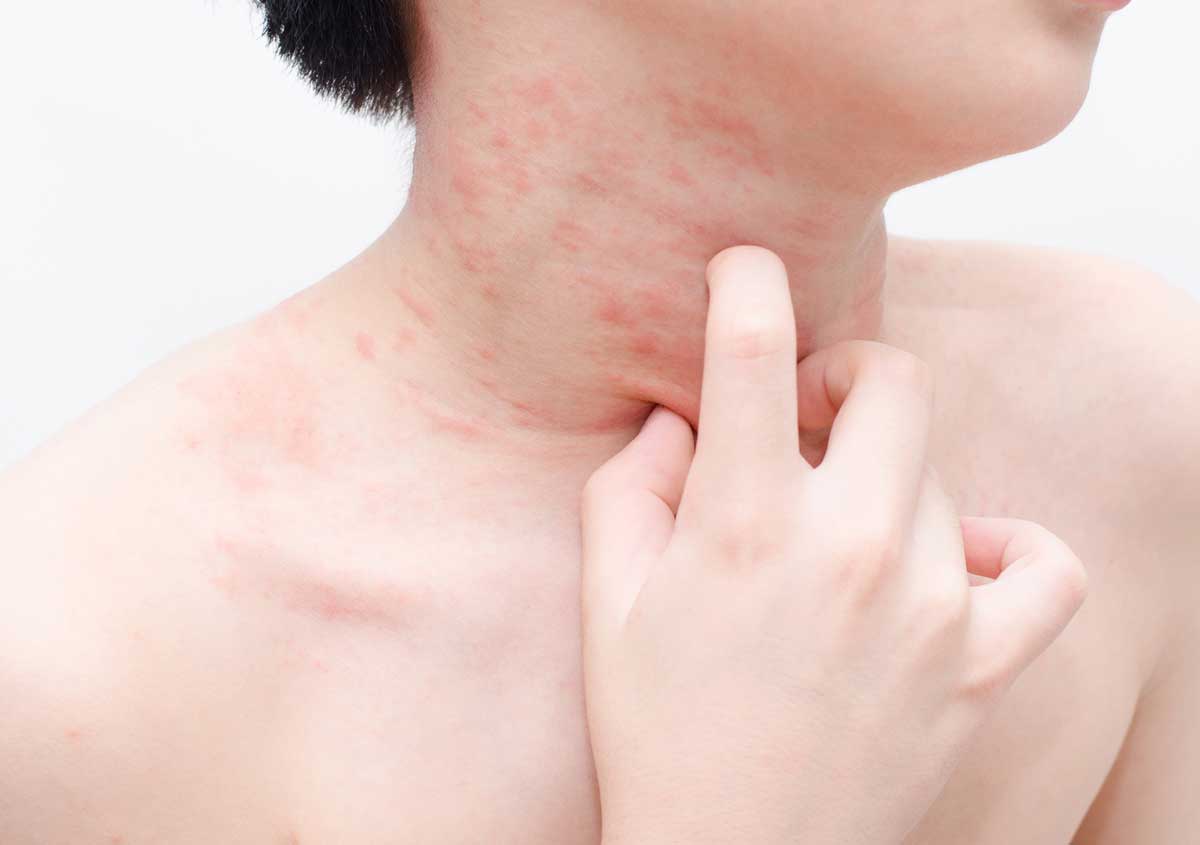Northbrook residents ask, “What are the most common food allergy symptoms?”

Nearly 2 percent of adults and 8 percent of children in the United States are affected by some form of food allergy. Food allergies occur when your immune system overreacts to certain foods that are normally harmless. Symptoms from food allergies can occur even after a minuscule amount of the food has been ingested. Often food allergies appear more in people who have family members with allergies. At Advanced Allergy & Asthma Associates, Dr. Askenazi and the staff work with patients to determine the cause of food allergies.
How do I know if I have a food allergy?
Food intolerance is something that often is confused with food allergies. Intolerances do not involve the immune system and are simply an abnormal response to the food or additive. An example would be an individual having an upset stomach after drinking milk. This type of reaction is typical of lactose intolerance and is a result of the person lacking proper enzymes to break down the milk sugars.
Food allergens are usually proteins. These proteins have been known to cause reactions, even if they are cooked or they have already begun to digest. Some allergens only cause reactions if consumed before being cooked. When these types of reactions occur, it is typically only on the mouth or throat. Some of the most common food allergies are cow’s milk protein, peanuts, eggs, wheat, shellfish, tree nuts, and soy.
What are the most common symptoms of food allergies?
The number one allergic reaction to a food is hives on the skin. Hives are itchy, red, swollen patches of skin that can appear and disappear rather suddenly.
Other symptoms may include:
- Eczema
- Asthma
- Vomiting
- Diarrhea
- Rash around the mouth
- Swelling of the mouth and throat
- Abdominal pain
- Swelling of the stomach
In some cases, allergic reactions can be severe and even life-threatening. These types of reactions, called anaphylaxis, are systemic allergic reactions. They usually begin with warm, tingling feelings in the mouth and can cause shortness of breath, anxiety, vomiting, and diarrhea. Anaphylaxis requires emergency medical treatment immediately. Symptoms can be reversed with epinephrine, antihistamines, and other measures.
If you are in the Northbrook area and you would like to schedule an appointment for food allergy testing, call our office today at (847) 888-8802.
Share this Article
Back to Oral Ingestion Challenges Page








